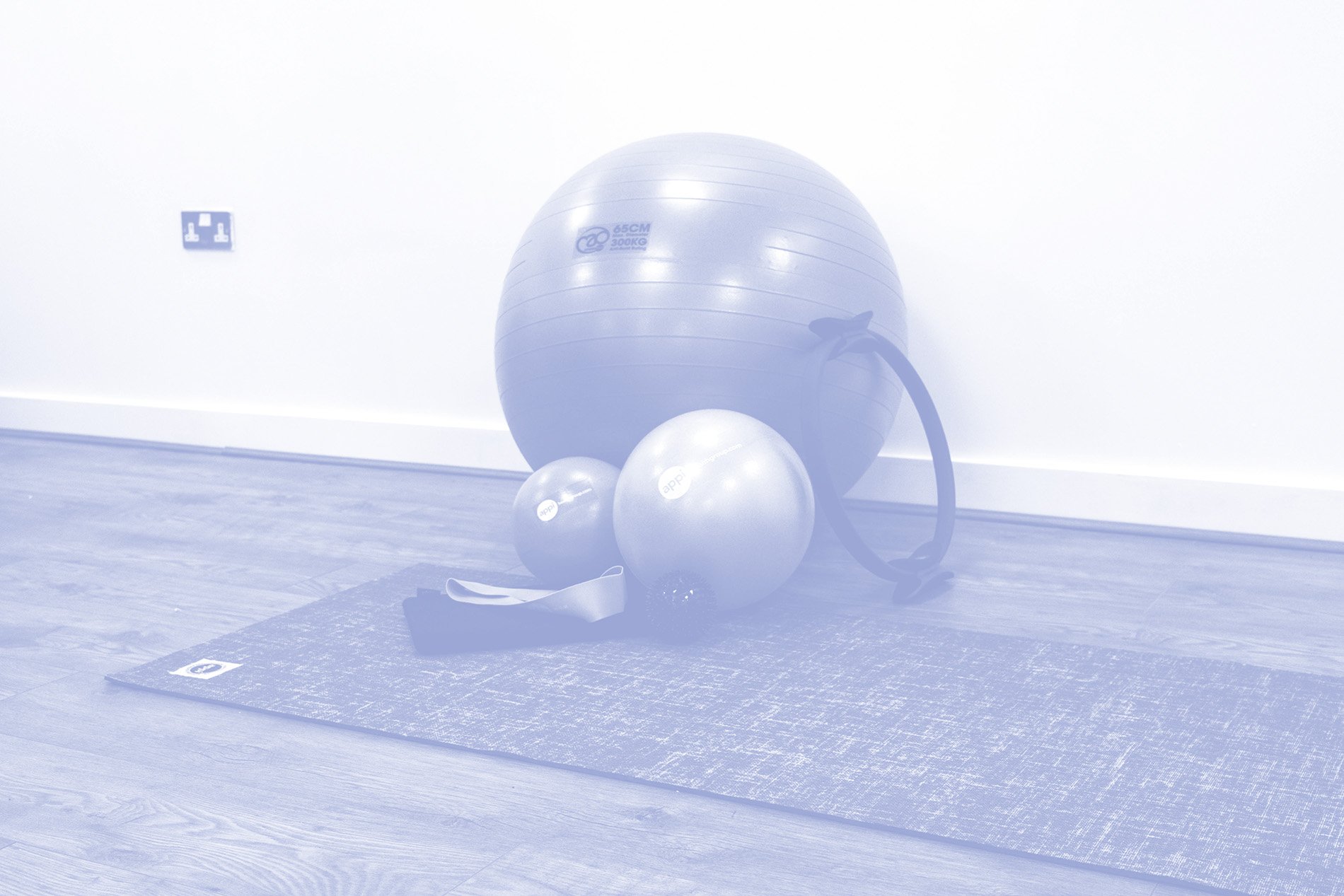
Pilates
at The Treatment Table
Pilates works your whole body
Unlike many forms of exercise, Pilates moves the body in all directions and orientations.
This means that in contrast to lifting weights at the gym, which usually works your body in one direction and one plane, Pilates strengthens and mobilises all muscles of the body.
This makes the body universally stronger and can protect it from injury when you happen to suddenly twist or turn in an unusual way. It can also create more balanced and uniform muscles.
This makes Pilates a great way to complement and enhance a gym-based workout with weights.
Studies have shown that Pilates improves quality of life by having a positive effect on depression and pain, most notably decreasing back pain.
Types of Pilates we offer:
1:1 Sessions:
For those who prefer a more specfic and private session, we offer a 1:1 Pilates session. This is the most intense way of progressing your pilates and will allow you more individual time with the instructor. We can make your session as intense or as fun as you like!
Session for 2:
A Pilates session for two offers a unique opportunity to feel more at ease and train with another person you feel comfortable with. Partners can motivate each other, create shared goals, and experience mutual support. Plus, a customised session ensures both individuals benefit from targeted exercises and guided progression.
Reformer Pilates:
Experience the benefits of Reformer Pilates with our qualified instructor guiding you through each move. Our personalised sessions focus on building core strength, flexibility, and alignment, using controlled, resistance-based exercises. Adaptable for all levels, our expert instruction ensures you achieve your fitness goals safely, effectively, and with lasting results.
Blocks:
Blocks will always work out cheaper as we value and appreciate your commitment to working with us! Bookings can be made online through our website or by downloading the Janeapp from your app store!
What is Pilates?
While the popularity of Pilates has increased in recent years, this method of exercise has actually been around for decades.
Today, there are a number of different Pilates schools that each teach a variation of the original method while all remaining true to the six original Pilates principles:
Breath
Concentration
Control
Precision
Centre
Flow
what is reformer pilates?
Reformer Pilates is a form of exercise that uses a specialised machine called a reformer to enhance traditional Pilates movements. This practice focuses on building strength, flexibility, balance, and core stability, making it an effective workout for people of all fitness levels. Developed by Joseph Pilates in the early 20th century, the reformer adds resistance and support, creating a versatile platform for functional and rehabilitative exercise.
The Reformer Machine
The reformer consists of a sliding carriage, adjustable springs, a footbar, and straps for hands or feet. The springs provide varying levels of resistance, allowing exercises to be tailored to individual needs. The carriage moves back and forth along the frame, and the straps and footbar are used to perform a range of motions. This setup makes the reformer suitable for improving both large and small muscle groups while maintaining control and alignment.
The Benefits:
-
Reformer Pilates emphasizes eccentric muscle contraction, where muscles lengthen under tension. This is excellent for improving flexibility and functional strength. The adjustable resistance challenges muscles in different ways, promoting balance and symmetry.
-
The instability of the moving carriage activates deep core muscles, enhancing stability and posture. Stronger core muscles support the spine, reducing the risk of injuries and alleviating chronic back pain.
-
The reformer provides a low-impact workout, making it ideal for people recovering from injuries or with joint issues. Its controlled movements protect the joints while strengthening surrounding muscles.
-
Reformer Pilates is widely used in physiotherapy for rehabilitation. It helps rebuild strength and mobility after injury, improving range of motion and muscular endurance without undue strain.
-
Exercises on the reformer target imbalances, improving alignment and coordination. This is particularly beneficial for individuals with postural issues caused by sedentary lifestyles or repetitive strain.

Pilates can improve your sporting performance
Athletes have benefitted from the Pilates method since it was first invented back in the 1920s.
Since then, however, Pilates has become the go-to for fitness fanatics or people playing recreational sports looking to improve their game, for injury prevention and for rehab. And, as many have discovered, you don’t have to be a professional to reap the benefits of Pilates’s game-enhancing properties.
Athletes (of any standard) can benefit from Pilates. As can people who do triathlons for fun and football after work. Pilates is also an effective way to support your body if you’re a fan of weight-lifting at the gym or running.
After all, Pilates is all about efficiency of movement, creating balanced muscles, and improving mobility in the spine and elsewhere – and these are things all fitness enthusiasts can benefit from.
If you’ve ever tried Pilates then you’ll know that certain movements really challenge your balance – and none more so than the side splits performed on a moving reformer platform on a light spring or lunging on the chair with no handles.
Dynamic exercises like these help to improve the efficiency of the body’s deep stabilising muscles. Through regularly practising these kinds of movements, you can also develop better coordination and balance.
Balance, coordination and stability are skills everyone can benefit from having, from sports professionals to desk workers. For athletes like tennis players, for example, developing better balance through Pilates can help them keep upright after having hit a ball when twisting and on one leg.
Developing these skills can be especially beneficial for older people including those with osteoporosis or at a high risk of falls. Studies have consistently shown that Pilates is an effective form of exercise to improve balance in older adults. Furthermore, Pilates has been shown to have a positive effect on balance and function for those with neurological conditions such as Parkinson’s Disease.







